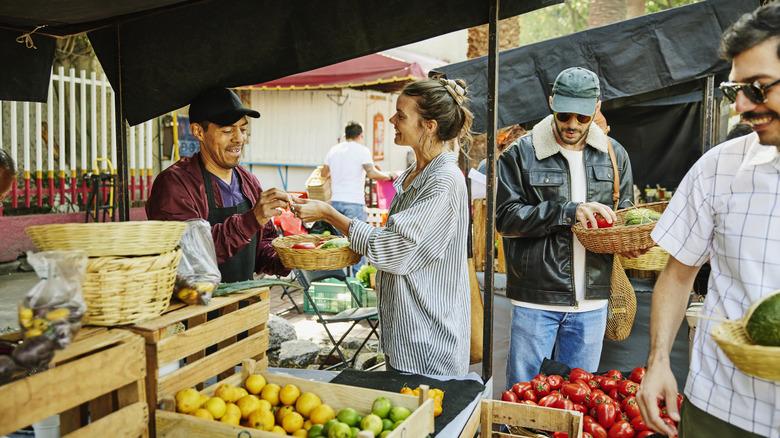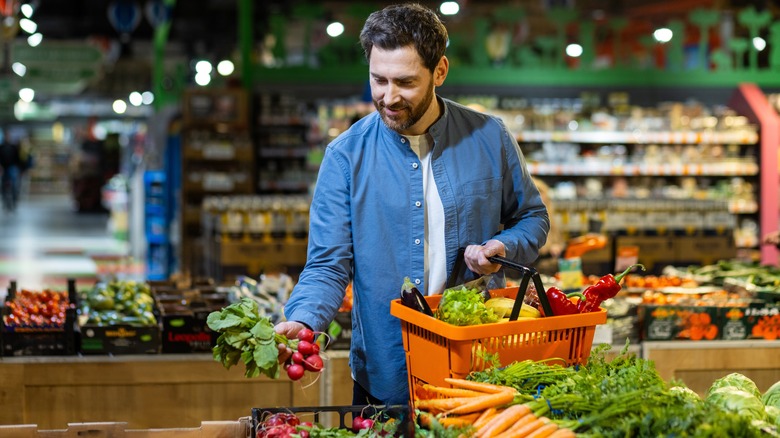Is Local Produce Cheaper Than The Grocery Store? Here's What To Know Before You Shop
Everyone loves to shop local, right? Walking down the rows of fresh farmers' market produce, chatting with the vendors, maybe even getting a free sample or two, this is one of those simple weekend joys that can make you feel like you're getting closer to the land. But the flip side of that is always the question of cost — after all, grocery shopping isn't strictly fun; it's also business. When it comes to whether shopping locally tends to be cheaper than going to the grocery store, the answer might disappoint you — but it's also not a hard and fast rule.
Generally, shopping at a grocery store is cheaper than heading out to your local farms. There's a reason the industry brings in about one trillion dollars in revenue a year. Grocery stores, especially larger chains, are typically more accessible and more consistently open than local food growers, and they can buy and sell in bulk, which allows for better purchasing deals.
That said, there are exceptions. If you hit a farm when they have an overstock of a particular product, you can find great deals if you're willing to buy larger quantities that can be stored for later. A 2018 study published in the Journal of Food Distribution Research compared farmers' markets and grocery store prices in Utah in 2016, showing that while a majority of veggies were cheaper at the store, certain produce, such as beets, raspberries, corn, and vine tomatoes, tended to be cheaper at the market, sometimes by a significant amount; however, organic products swung strongly in favor of grocery stores.
How to maximize your budget at the market
Another wrinkle is the comparison between local grocery stores and national chains. While national chains were still, on average, more affordable in the aforementioned study, the gap was significantly closer, especially when it comes to organic food. That said, local grocers also tend to have a more limited stock than their national counterparts, which can necessitate several different trips if they don't have what you're looking for.
It's not necessarily a surprise that farmers' markets tend to be on the more expensive side. Mass production makes things cheaper by design, and local growers simply don't have that luxury. Instead, farms and markets rely on the quality of their produce and the comfort of knowing exactly what went into it and where it came from. For example, farmers' markets are where you can buy pasture-raised eggs and know they're real, rather than relying on national chains that may have questionable quality and animal treatment practices.
The best way to shop cheaply at a local market is to take a lesson from Julia Child and go with no shopping list. This is not simply to experience the magic of spontaneity, but to make your choices based on what's abundant and fresh at that time of year. Maybe that means not buying blueberries in winter if you're on the east coast, but instead, looking for pears, which grow best from August to December. If you're buying avocados, learning their varieties and when they're in season can help keep costs down


